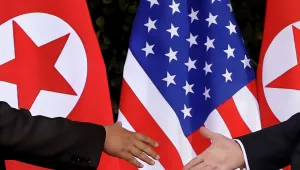Preface
Georgia's stability and security are essential factors to the success of the east-west corridor pipeline projects and the country?s economic development . Resolution of the secessionist conflicts affecting Georgia is vital to ensuring the state?s security and regional prosperity. "Federalization of Foreign Relations: Discussing Alternatives for the Georgian-Abkhaz Conflict" is being published as part of the Caspian Studies Program's Working Paper Series, and it addresses potential models of federalization that could encompass the breakaway regions of Abkhazia and South Ossetia. This paper focuses on the specific topic of the consequences of the various federation models for the foreign policymaking process. This paper is a very detailed study geared toward the specialist focusing on the conflicts affecting Georgia, as well as the student of conflict resolution and federation who is interested in studying the theoretical implications of the Georgian case.
This paper is based on extensive field research conducted by the authors, Bruno Coppieters, Head of Vrije Universiteit Brussel's Political Science Department; Tamara Kovziridze, Researcher at Vrije Universiteit Brussel's Political Science Department; and Uwe Leonardy, Senior Fellow at the Center for European Integration Studies at Bonn University . In preparation of this paper, they discussed these federation models with Georgian and Abkhaz officials, politicians, scholars, journalists, and representatives of the nongovernmental organization (NGO) community, and this paper reflects those discussions. The paper is also intended to stimulate discussion among Georgians, Abkhaz, and South Ossetians. The results of these discussions may be helpful in optimally resolving their conflicts.
"... [T]raditional arguments in favor of federalism are not particularly convincing to political leaders in the South Caucasus. Their experience with Soviet federalism was not positive. Under the Soviet system, some administrative competences were distributed along a federal model between the leadership in Moscow and the leaderships of the various union republics, autonomous republics, and autonomous regions. But no autonomous legislative power was devolved to the union republics, autonomous republics, or autonomous regions under this system. In practice, federal governance in the Soviet Union amounted to administrative decentralization under the control of a centralized communist party. The experience of federalism under the Soviet system left the Georgians, Abkhaz, and Ossetians deeply dissatisfied.
Leaders of the Georgian, Abkhaz, and Ossetian national movements even consider Soviet federalism to be one of the main causes of the exacerbation of ethnic conflicts in Georgia and are not eager to reinstitute a federal structure. From the Georgian perspective, the Moscow leadership used federalism as an instrument to divide and rule and weaken the Georgian movement for national independence. From the Abkhaz and South Ossetian perspectives, Soviet federalism has put the various national communities in a hierarchical relation toward each other. This kind of ethnic stratification runs contrary to the principle of national self-determination, which pre-supposes the equality of all national communities. The exacerbation of ethnic conflicts in Georgia during the first half of the 1990s and the failure of existing federal arrangements to address these problems led to war in South Ossetia and then in Abkhazia. These wars resulted in the creation of two de facto states in these regions...."
Coppieters, Bruno, Tamara Kovziridze and Uwe Leonardy. “Federalization of Foreign Relations: Discussing Alternatives for the Georgian-Abkhaz Conflict.” Caspian Studies Program, October 2003




